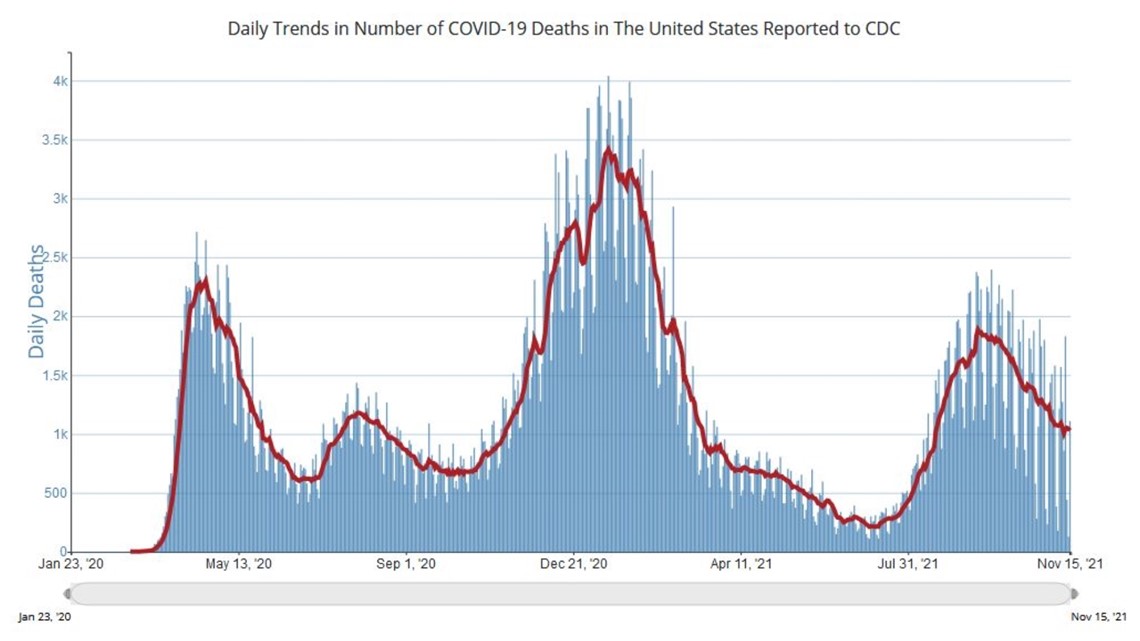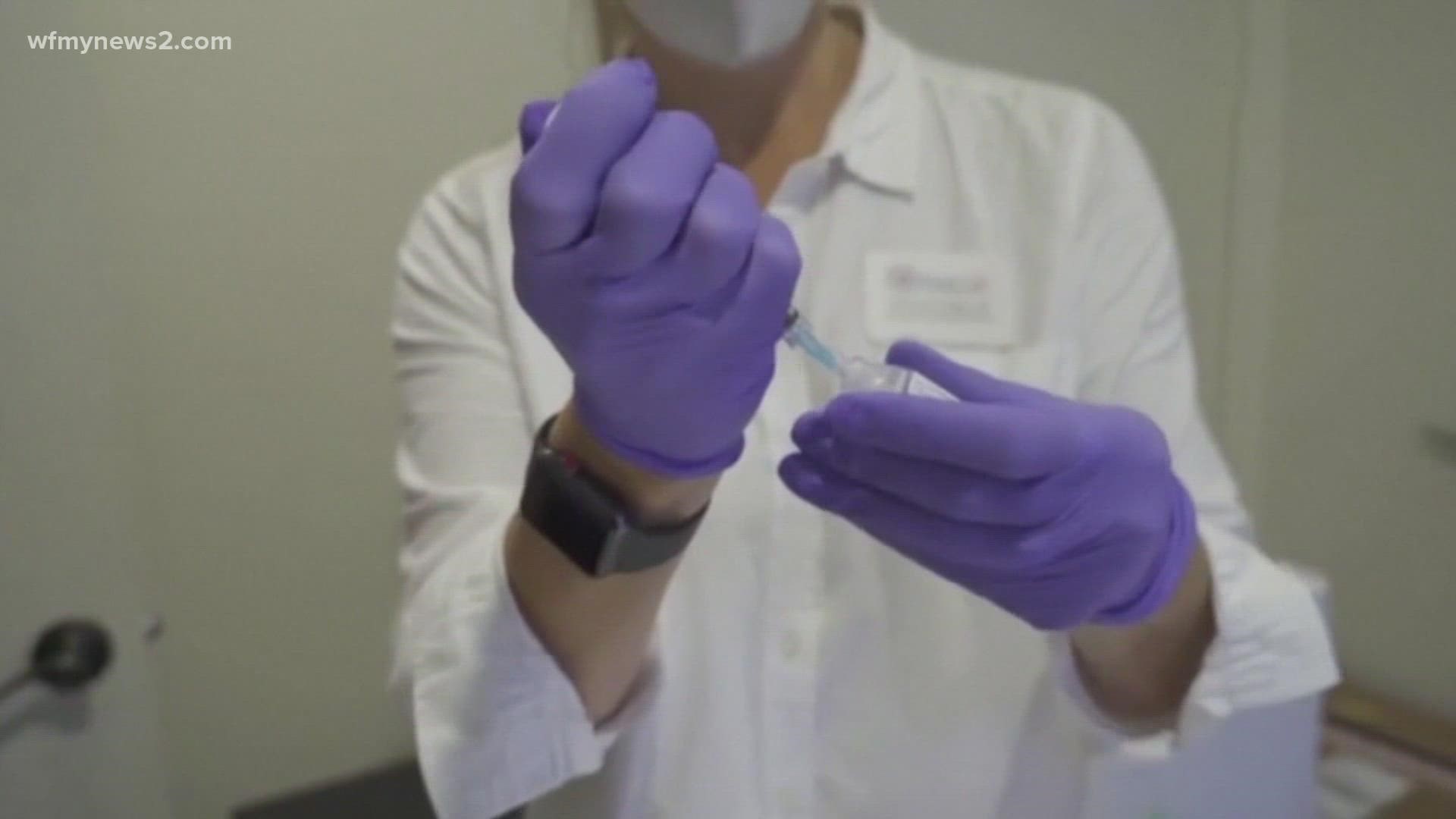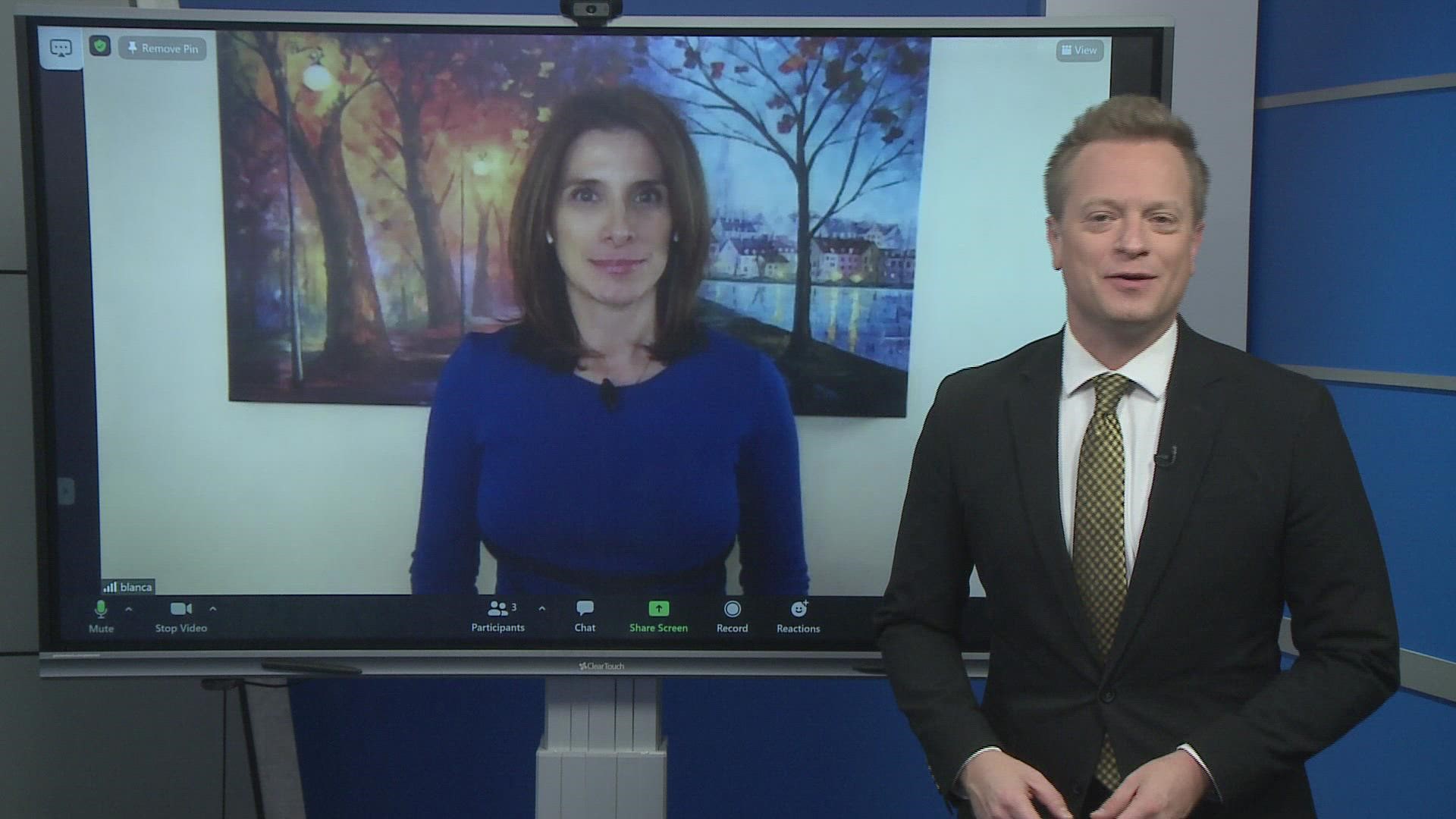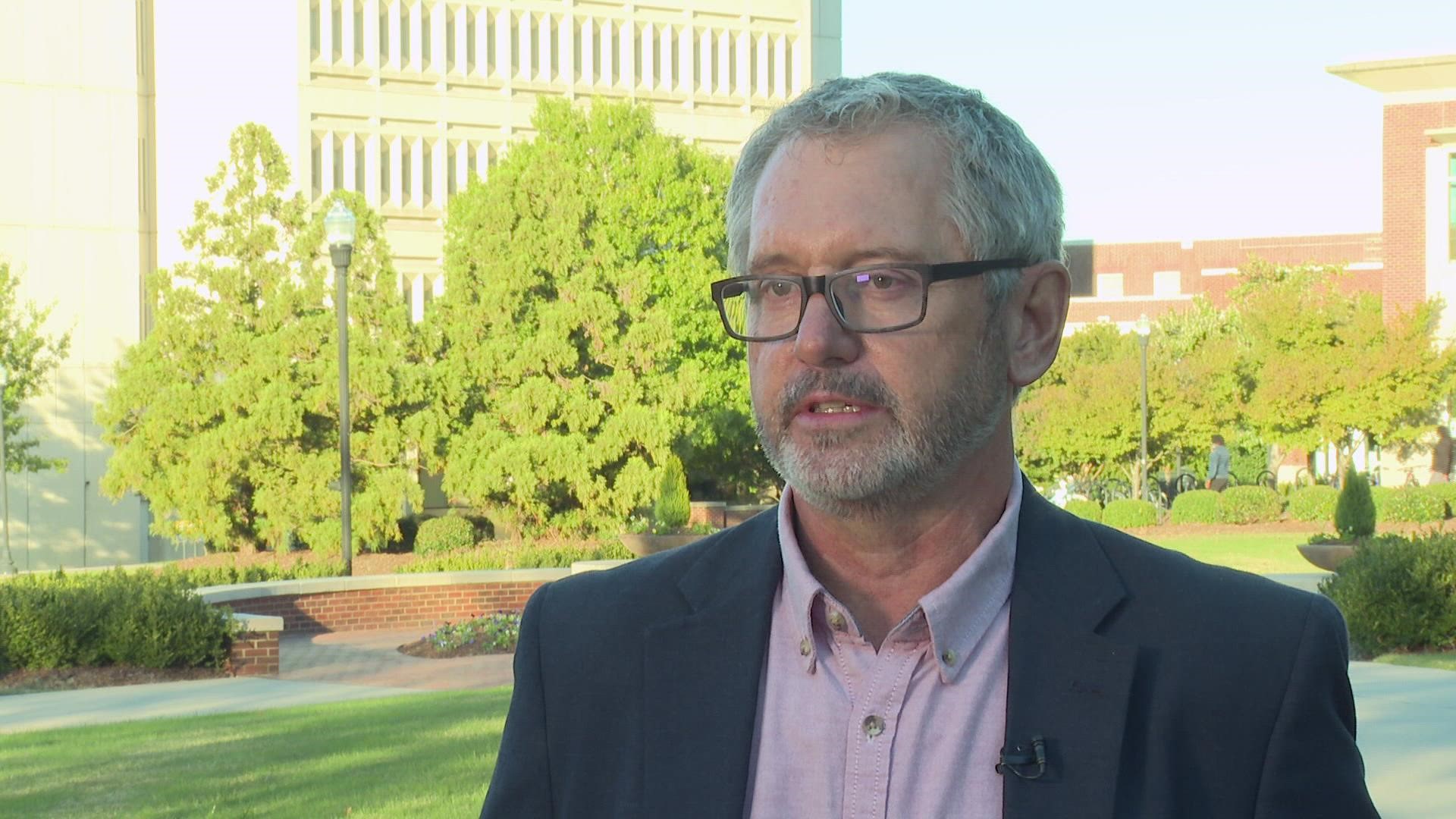GREENSBORO, N.C. — There are plenty of reasons why you either got the COVID-19 vaccine or didn't. In our state, a third of people have not been vaccinated.
It's easy to criticize people who have opinions that are different from your own, but forming those opinions is much deeper than you might think.
To understand why so many people are against getting the COVID-19 vaccine, we need to go deep inside the mind to find out what leads us to make decisions in the first place. Experts say much of it has to do with our core beliefs, established at a very young age.
"The things that have driven us all the way through life,” said Dr. Nannette Funderburk, a psychotherapist at the S.E.L Group. “So, these are some of the ideals that we get from the people that we come from. So, our parents and those people that we grew up around, the communities that we grew up in, those things kind of become engrained in us quite early."
Funderburk said there are three factors at play when it comes to resistance to the vaccine. The first is pride.
PRIDE
"If the information that is coming toward me conflicts with what I was initially thinking, then I don't want to be wrong so I'm going to dig my heels in even more," Funderburk said.
POLITICAL BELIEFS
The second is political beliefs. Experts believe the vaccine has been politicized and used to sway people's thinking.
"They've recognized that and they said, 'OK, these are the people we need to go after, or those are the people we need to go after and that's what they do," Funderburk said.
GROUP THINK
Finally, a term called Group Think, which is just how it sounds. An individual who's part of a larger group tends to think like that group.
"Anybody who doesn't think like the group is going to either keep their thought to themselves, or they may quietly separate themselves from the group," Funderburk said.
Dr. Bob Strack, a professor of Public Health at UNC-Greensboro, agreed.
"We gather our information from like sources, people that agree with us,” Strack said. “And because of that, we end up being in what we know as echo chambers of information or misinformation."
Strack said our society is largely based on an idea of rugged individualism. Think John Wayne.


"We've let go or we've forgotten that there's a mutual benefit to how we behave together and that's some of what's occurring with this vaccine because, in many ways, we've politicized it to make it a rugged individual decision when indeed the vaccine has a collective benefit that benefits yourself and those around you," Strack said.
Another factor Strack described is that COVID-19 isn't a virus with visible symptoms.
"It's easy for people to dismiss it because they don't see themselves as being susceptible and they don't see the disease as being as serious as it is," Strack said.
If you're fully vaccinated, you might feel inclined to try to convince your friends or loved ones to also get the shot.
Funderburk warned it’s a delicate conversation. "When you're talking to someone who doesn't believe the way you believe, in case they do want to shift sides, you always want to allow them to do that with grace and humility."
Funderburk said it's getting more and more difficult to bridge the gap between opinions.
"We're seeing less and less open, diverse conversation where the two people; one person from group A and one person from group B actually come together and have that conversation with their ideas and their ideals put out on the table," she said.
Stay connected to local, national, and breaking news: Download the WFMY News 2 app.
►Text the word APP to 336-379-5775



